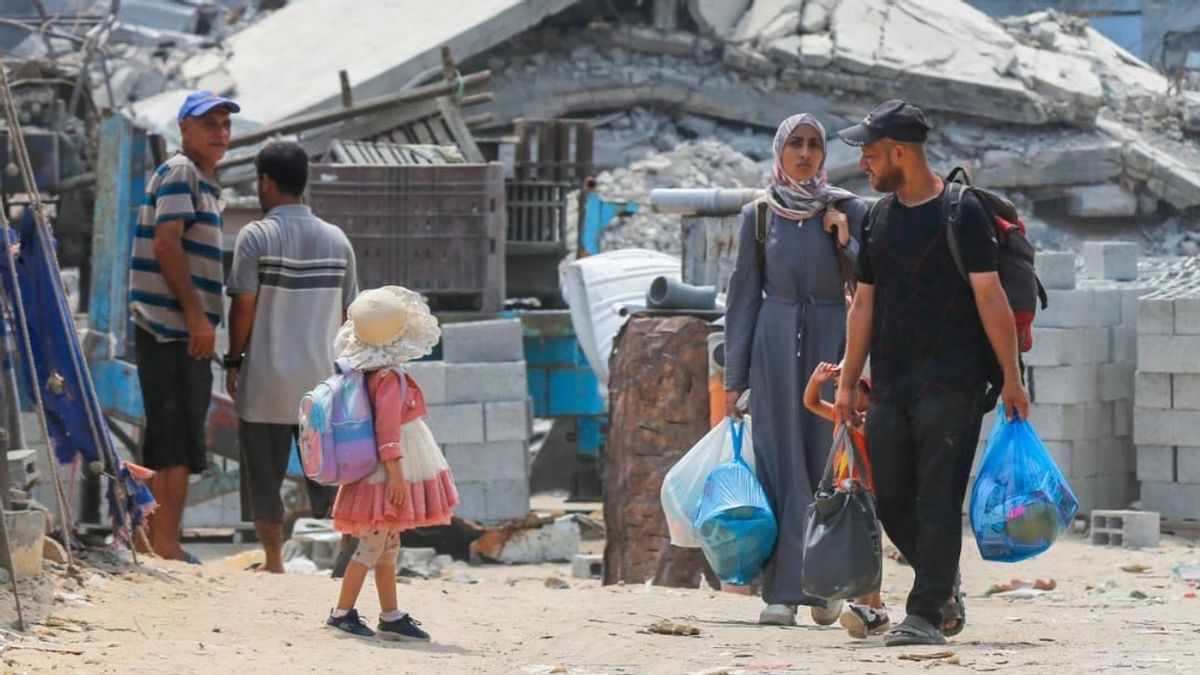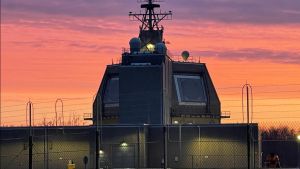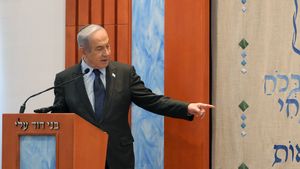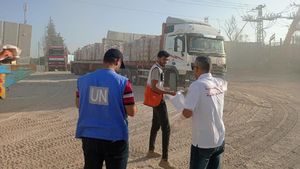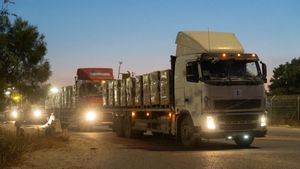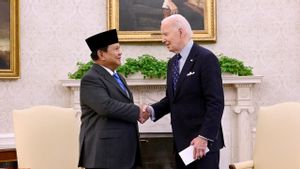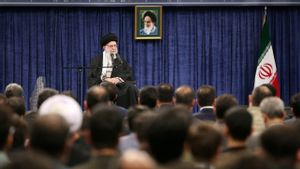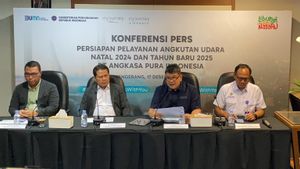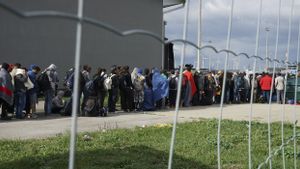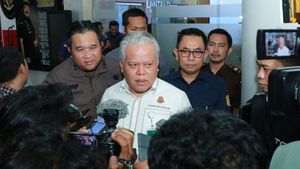The United States' ambassador to the United Nations warned Israel there should be no forced transfer and hunger in the Gaza Strip, Palestine at a meeting of the Security Council on Tuesday.
Ambassador Linda Thomas-Greenfield stressed that the policy of forced transfer and hunger in Gaza will have serious implications according to US and international law.
The statement was made by Ambassador Thomas-Greenfield hours after Washington said its ally, Israel, had done enough to address the humanitarian crisis in Gaza to avoid potential restrictions on US military aid.
"Still, Israel must ensure its actions are carried out completely - and its improvements continue from time to time," Thomas-Greenfield told the UN Security Council.
"Israel is also very important to stop the implementation of a law banning the operations of the UN aid agency for Palestine, UNRWA," he added.
The Israeli parliament has approved a law banning UNRWA operations in their territory, while PM Netanyahu's Government has officially written to the United Nations regarding Israel's decision no longer part of the 1967 UNRWA cooperation agreement.
The council held a meeting to discuss reports from global hunger experts stating there was a "most likely hunger will soon occur in several regions" in northern Gaza, as Israel carried out a military offensive against Palestinian militant group Hamas in the region.
"Most of Gaza's territory is now an empty land filled with debris," UN aid acting head Joyce MSuya told the council.
"As I briefed, Israeli authorities blocked humanitarian aid to enter North Gaza, where fighting continues, and about 75,000 people are still alive with water supplies and food running low," he said.
Meanwhile, Israel's Ambassador to the United Nations Danny Danon rejected the warning of hunger from global hunger experts as "miscaprah", outlining Israel's efforts to improve the humanitarian situation in Gaza.
"I urge all of you to consider the facts. Pay attention to Israel's actions in the field. Consider the risks taken by our army to enforce this humanitarian commitment, which often occurs when facing active threats," said Ambassador Danon.
Meanwhile, Slovenian Ambassador to the United Nations Samuel Zbogar said the Security Council needed to take action.
"More than a year after the war, we were unable to receive guarantees implying anything that might be done to protect the civilian population in Gaza. This is absolutely not true," he said.
It is known that the UN Security Council is currently discussing a draft resolution that "quires an immediate, unconditional and permanent ceasefire that must be respected by all parties" in Gaza.
The resolution also "asks facilitation of the entry of humanitarian aid in full, fast, safe, and without obstacles on a large scale to and throughout the Gaza Strip and its delivery to all Palestinian civilians who need it."
SEE ALSO:
The manuscript was compiled by 10 elected council members, who began negotiating with five permanent members of veto rights holders - Russia, China, the US, Britain, and France - in early November.
Russia and China on Tuesday supported the draft text and called for an immediate vote.
A draft resolution requires at least nine votes to support and no veto from permanent members to be ratified into resolution.
The English, Chinese, Japanese, Arabic, and French versions are automatically generated by the AI. So there may still be inaccuracies in translating, please always see Indonesian as our main language. (system supported by DigitalSiber.id)
